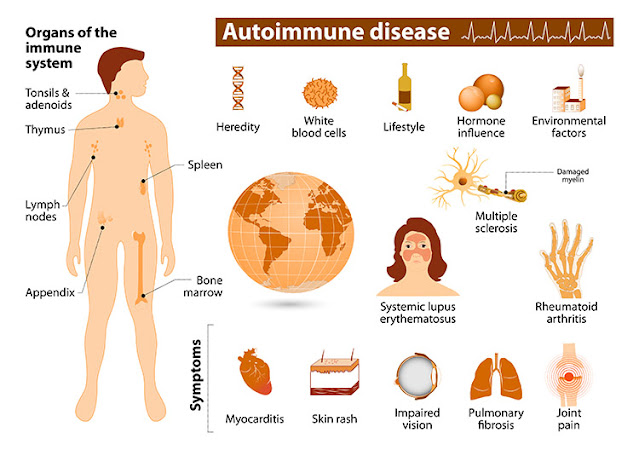Scientists Find a Cause of Lupus and a Way to Potentially Reverse It (2025)
Current lupus treatments often target symptoms or broadly suppress the immune system, leading to side effects. The researchers believe targeting the specific chemical imbalance identified could more effectively treat lupus without systemic immunosuppression interventions.
Lupus is a chronic autoimmune disease that causes the body to attack its own tissues and organs, including the joints, skin, kidneys, blood cells, brain, heart, and lungs.
There is currently no cure for lupus.
A Surprising ‘Molecular Switch’
The chemical that researchers identified is the aryl hydrocarbon receptor (AHR).Researchers found that lupus patients have reduced AHR activity. This reduction leads to an increase in follicular and peripheral T helper cells, which are involved in inflammation and autoimmunity.
However, when AHR activity increases, these T-cells are reprogrammed to be T-cells that promote wound healing and barrier protection.
Dr. Jaehyuk Choi, associate professor of dermatology at Northwestern University Feinberg School of Medicine, and the study’s senior author, explained to The Epoch Times that AHR can be compared to “a molecular switch” that determines the fate of immune cells.
By developing therapeutics that target AHR in rogue T-cells, researchers believe they may be able to reverse lupus.
Dr. Choi and Dr. Deepak Rao, an assistant professor of medicine at Harvard Medical School, expressed their surprise at discovering that AHR could be vital in reversing autoimmunity, given that the receptor had no known connection to it.
Dr. Rao, who is also a senior author of the study, added that it was initially surprising to find that a T-cell involved in wound healing would be the opposite of an autoimmune T-cell.
“Those two T-cell populations with those two functions are not obviously connected or related,” he said. He added that he could not have predicted that when wound-healing T-cells increased, autoimmune T-cells would decrease, and vice versa.
T-Cells Drive Autoimmunity
Follicular and peripheral T helper cells have long been known to play a major role in driving lupus, Dr. Rao told The Epoch Times.In lupus, the patient’s body produces autoantibodies, antibodies that attack self-tissues. B-cells generate these autoantibodies under the control of rogue autoimmune T-cells.
Therefore, by converting these autoimmune T-cells into cells involved in wound healing, the production of autoantibodies is reduced, thereby decreasing autoimmunity.
“It is almost like a cell streamline, where if you can block one part, then the downstream is blocked,” Dr. Choi explained.
He highlighted the study’s findings demonstrating that adding AHR to rogue T-cells in cell culture transforms them into wound-healing cells. These reprogrammed cells can no longer help B-cells make autoantibodies.
Treatment Without Immunosuppression
The study sampled 19 lupus patients and compared their immune cells to those of 19 healthy people.Despite the small initial sample size, the authors told The Epoch Times that they believe their findings apply to all patients because they have been corroborated through genetic studies.
Current lupus treatments are prescribed to resolve symptoms or elicit broad immunosuppressive effects by reducing B- and T-cell activity.
However, when rogue T-cells are targeted explicitly with AHR, patients may experience disease reversal without compromising their overall immunity.
Additionally, the increase in cells involved in wound and barrier repair may help alleviate gastrointestinal problems in patients with lupus.
“There have been a number of studies that have suggested abnormalities in barrier function or barrier integrity in patients with lupus, especially in the gut,” Dr. Rao said. “So one can imagine that there could be a beneficial effect of that.”
Currently, Drs. Choi and Rao’s team are working to identify specific therapeutics that selectively target only rogue T-cells.
Since AHR is present in all cells, broad administration of AHR-targeted treatments could cause systemic adverse effects, which the authors are trying to avoid.
Major Environmental Contributors to Lupus?
Researchers do not know why AHR is involved in lupus progression. It is also currently unknown why some people get lupus and others don’t, though researchers believe it is a combination of genetic and environmental exposures to toxins and infections.Given AHR’s role in responding to environmental factors, Dr. Choi said their findings may suggest that major environmental factors contribute to lupus.
Perhaps AHR, “which normally integrates information from the outside or the environment … has gone awry in patients with lupus,” and patients may be able to resolve their lupus through lifestyle changes alone, Dr. Choi speculated.
“I think this needs more research, but it is an interesting idea that we can now think about,” he said.
Reposted from: https://www.theepochtimes.com/health/scientists-find-a-cause-of-lupus-and-a-way-to-potentially-reverse-it-5683809
Related:


.png)

.png)



.jpg)

Comments
Post a Comment